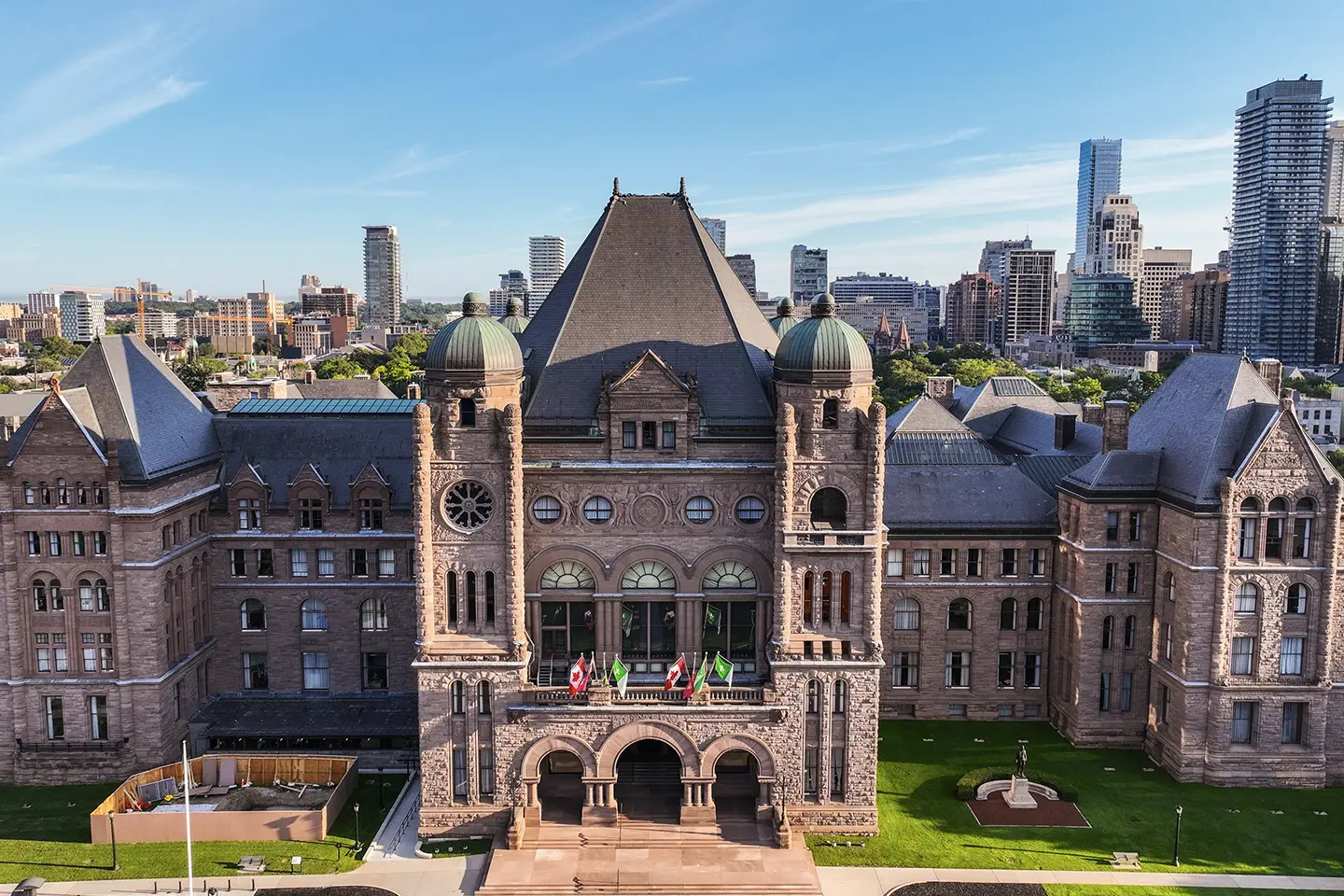Canada Responds to Trump Tariffs

Yesterday, President Donald J. Trump signed an executive order imposing a 25 percent tariff on Canadian goods and a 10 percent tariff on Canadian energy effective Tuesday, February 4, 2025. Energy is defined as crude oil, natural gas, lease condensates, natural gas liquids, refined petroleum products, uranium, coal, biofuels, geothermal heat, the kinetic movement of flowing water, and critical minerals. Government officials have confirmed to Sussex that this includes electricity exports.
This update provides an overview of the tariffs imposed by President Trump and Canada’s response. The situation is very fluid, with more details to come in the days ahead, particularly with respect to Canada’s initial list of targeted American goods.
Overview
Since his election in late 2024, the President has often repeated the threat of tariffs on Canada and Mexico. In his executive order, he cited fentanyl and illegal immigrants coming across the northern border as a reason for his punitive action. Until resolved the executive order states, the tariffs will stay in place. Furthermore, if Canada retaliates with tariffs or other measures, the President reserves the right to increase tariff levels.
Despite that threat, Canada did act yesterday evening. Prime Minister Trudeau announced 25 percent retaliatory tariffs, which will apply to $155 billion worth of American imports. Products include fruit juice, clothing, home appliances, furniture, lumber, plastics, and more. The tariffs will be implemented in two steps: $30 billion worth of goods on Tuesday, February 4, and then a further $125 billion in 21 days to allow Canadian businesses to find alternatives. During the 21 days, Finance Canada will consult with Canadian businesses to refine the product list.
Finance Canada also announced that a remission process would be implemented to consider requests for exceptional relief of imposed tariffs.
While the federal government did not announce any non-tariff measures, Prime Minister Justin Trudeau indicated that export control measures on Canadian energy and critical minerals were a possibility.
Provincial Response
Many provincial premiers took to the airwaves yesterday evening to outline their own retaliatory measures as well.
British Columbia announced that BC Liquor would end the sale of liquor from so-called “red states” while also directing the BC government and Crown Corporations to end all US purchases and to “Buy Canadian”. Premier Eby also announced support measures including the expedition of approvals for 10 major projects in mining, renewable energy, and natural gas, representing $6 billion in investment.
Nova Scotia will remove all US liquor from shelves, and limit access to provincial procurement for American businesses.
Quebec has announced it would review all contracts with US suppliers. Furthermore, the government would, through its investment agency, support Quebec businesses. It also intends to accelerate any Hydro Quebec projects. Finally, it will undertake and fast-track major infrastructure projects.
Business Reaction
Reacting in real time to the evolving situation yesterday, Canadian businesses expressed significant concern and opposition to the tariffs imposed by President Trump.
The Canadian Chamber of Commerce condemned the tariffs, stating that they will "drastically increase the cost of everything for everyone," and emphasizing that "every day these tariffs are in place hurts families, communities, and businesses."
Industry leaders in the auto sector similarly warned that the tariffs could disrupt the highly integrated North American auto industry, leading to potential job losses and increased costs for consumers.
More broadly, many Canadian companies are bracing for significant short-term revenue losses and are working feverishly to find alternative supply chains and markets, repositioning parts, stocking up on materials, and lobbying for exemptions to mitigate the impact.
Economic Implications
Economists predict that the tariffs could lead to increased costs for consumers, supply chain disruptions, and a recession. The move has been described as ushering in a new age of U.S. protectionism – “a trade war on steroids, says the Financial Times” - with potentially severe economic implications for all involved.
Some economists have been speaking publicly about what Canadian businesses might see ahead, including a recession in the range of 2.5 percent decline in GDP, a weaker Canadian dollar and further interest rate reductions by the Bank of Canada. However, the tariffs may also lead to higher inflation, complicating monetary policy decisions.
Conclusion
With President Trump’s new 25 percent tariffs on Canadian imports, Canadian businesses need to act swiftly to mitigate risks, manage costs, and adapt their strategies. Sussex recommends that all clients quickly assess their immediate exposure to tariffs and communicate to both the federal and provincial governments the challenges that they face.
Proactive engagement with governments will inform the strategic response to the U.S. tariffs, and also economic supports that are currently being designed. Companies will also want to be aware of any exclusions or waivers for product classes in which they have an interest.


